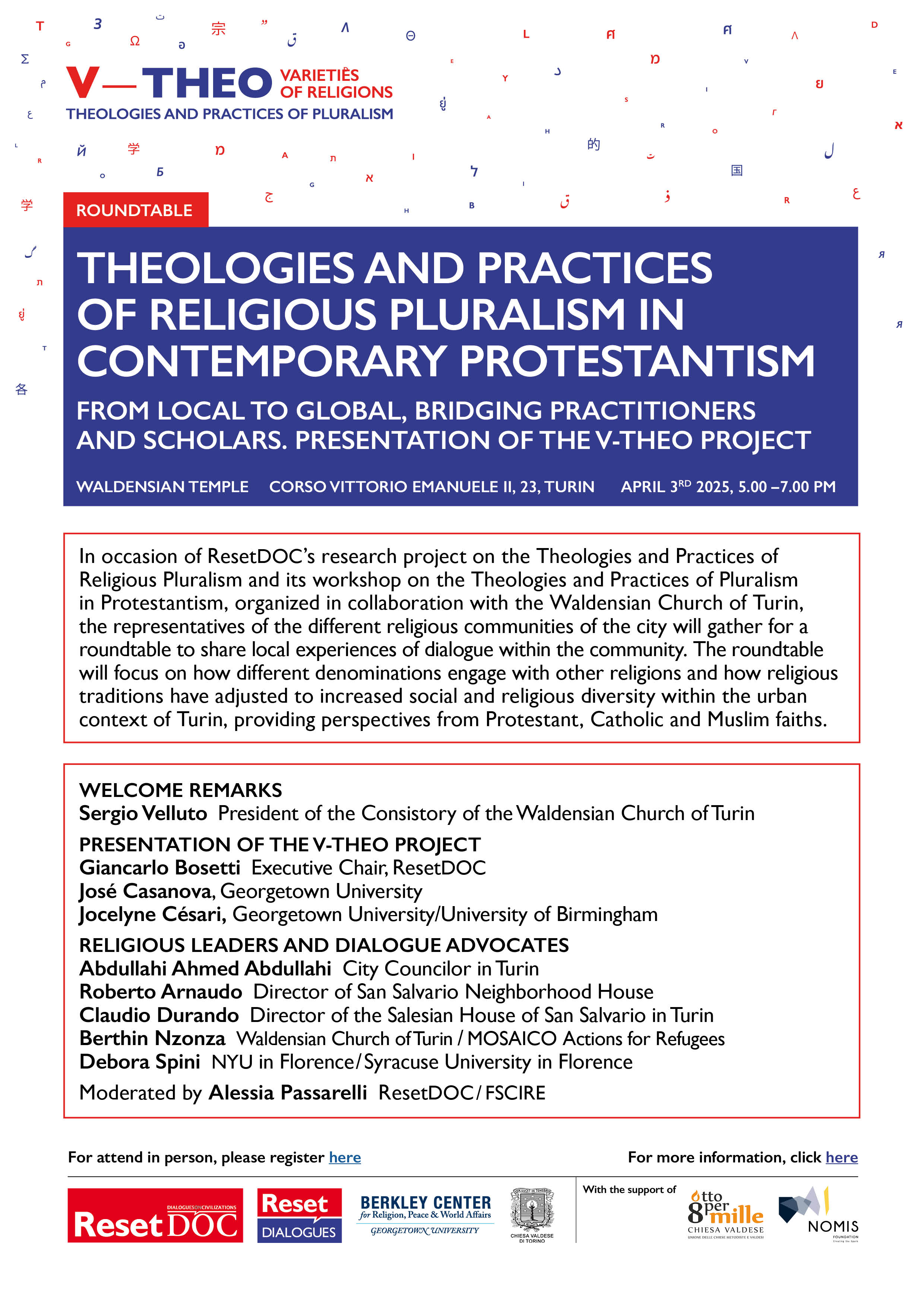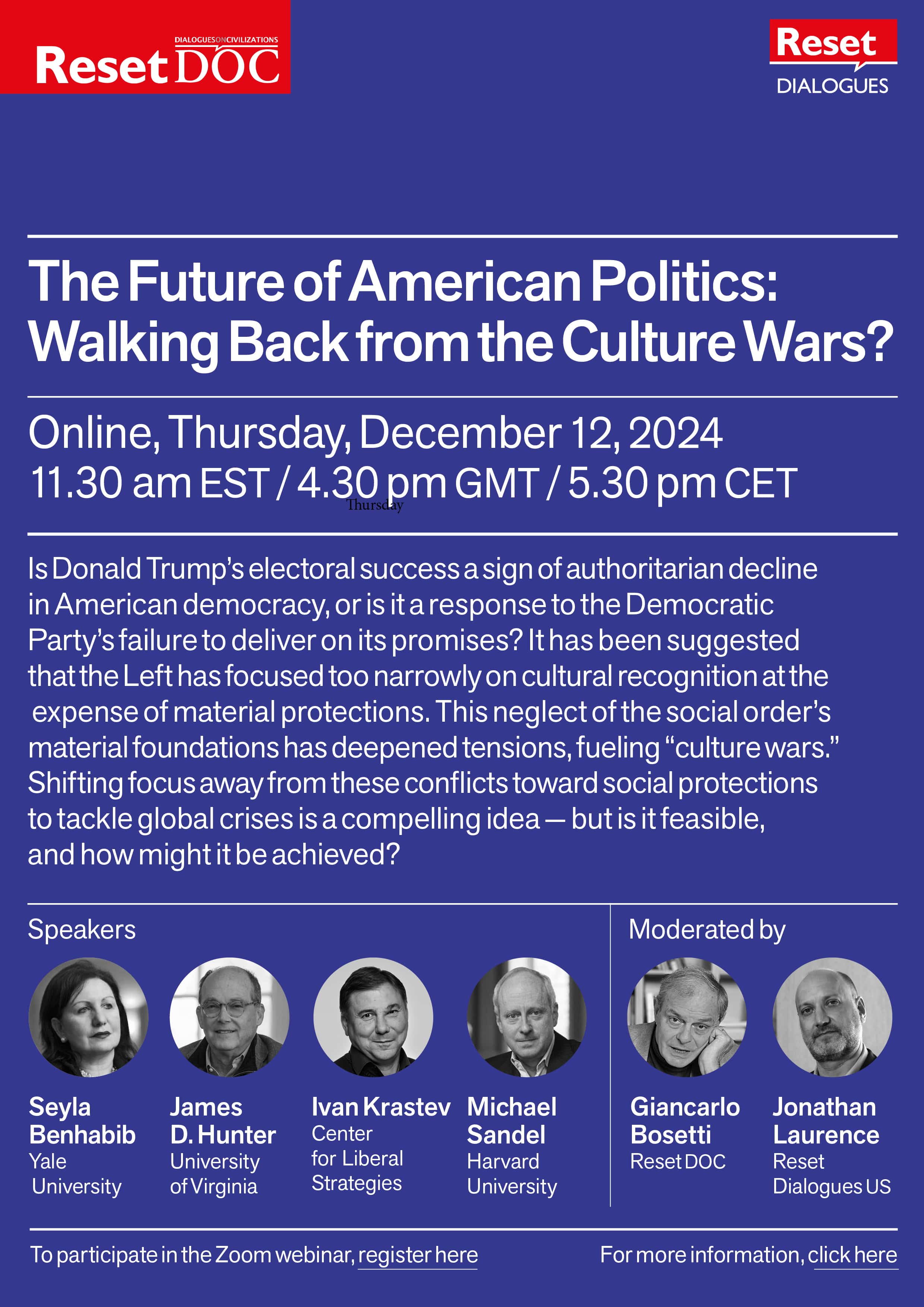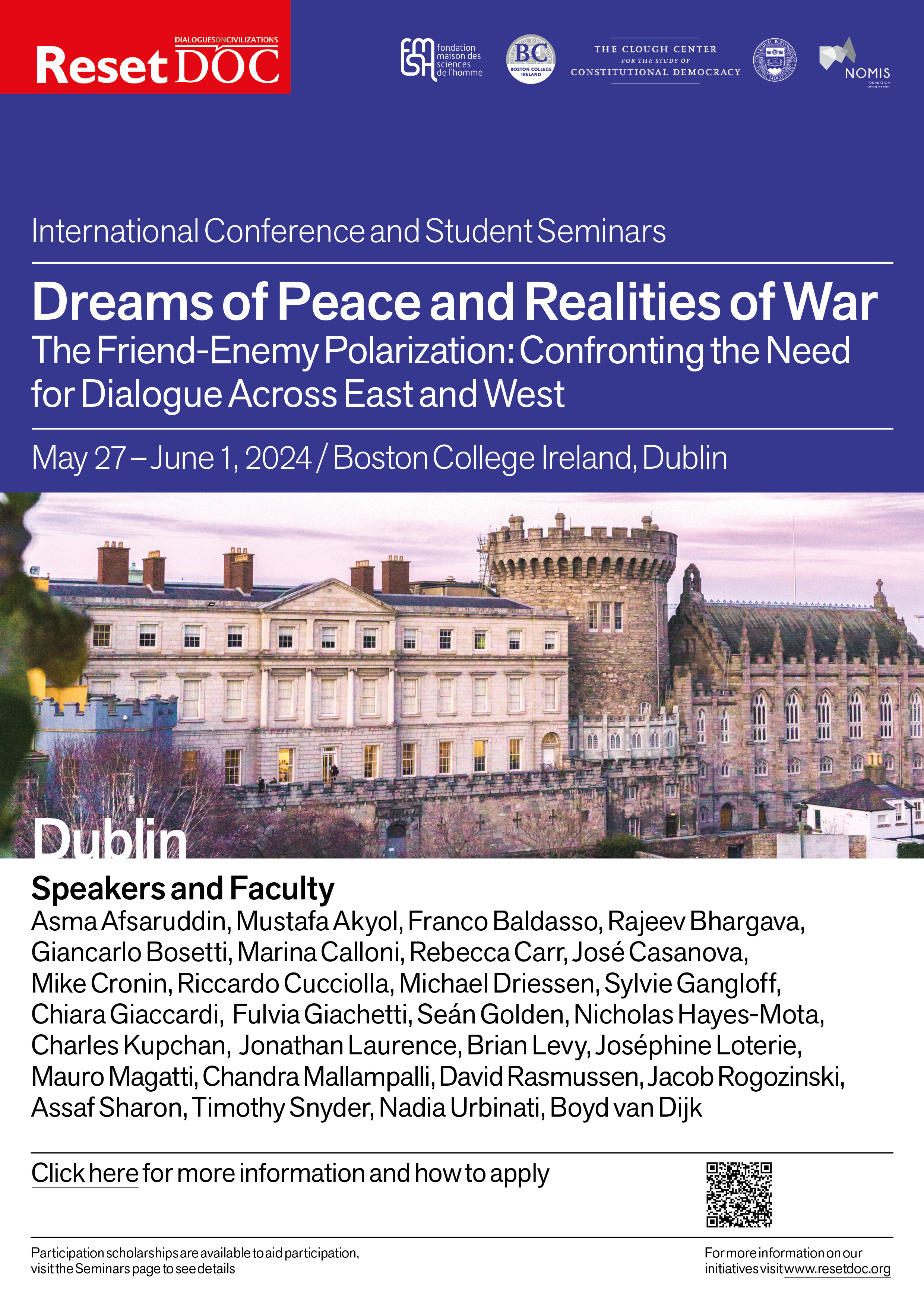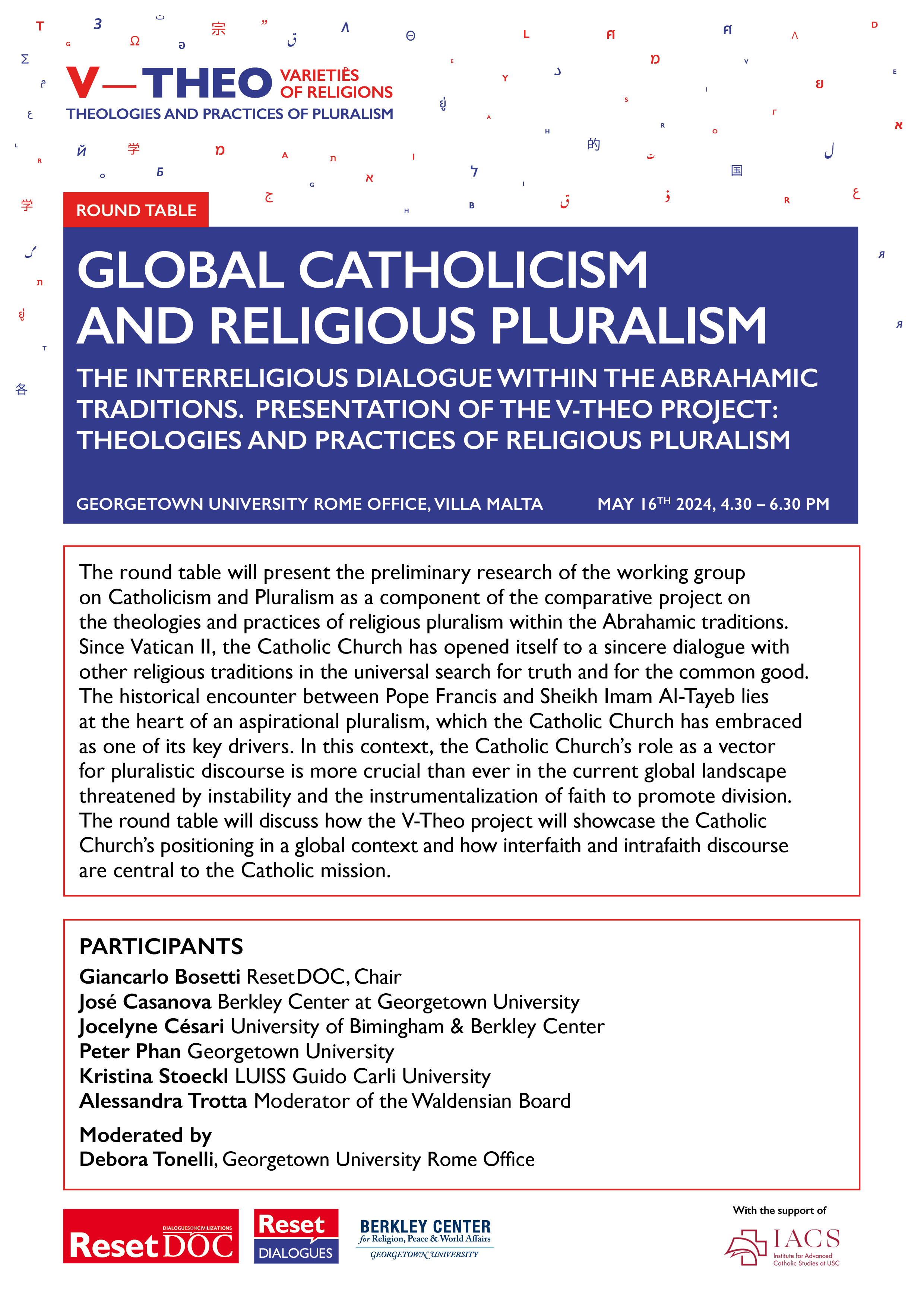Reset DOC is hosting a lecture by Wendy Brown (Institute for Advanced Study, Princeton) on October 10 at 11:30 a.m. at the University of Milan-Bicocca (Building U6 – Agorà, 4th floor – Aula Massa). The lecture will explore the growing fractures between capitalism and liberal democracy, examining risks of political distortion toward autocratic and patrimonial forms, with a focus on the U.S. experience.
Convening
-
- The conference and seminars will examine the decline of liberal democracies, exploring the discontent between the elite and the working and middle classes, the ineffectiveness of traditional grievance channels, and the rise of radical polarization and extremist views. It will also address growing inequalities and the challenge of finding new frameworks to resolve the evolving conflict between the many and the few, with a focus on how modern philosophy can play a key role in developing solutions.
- This panel gathers scholars to explore how Jewish thought, identity, and practice respond to pluralism in today’s globalized world, addressing challenges like relativism, atheism, and diverse norms. Panelists will discuss Judaism’s role in cultural and religious diversity, reflecting on its contributions and transformations. Through theology, philosophy, politics, and sociology, this conversation invites the public to ponder Jewish pluralism in our interconnected yet fractured world.
-
- This international conference will address the critical challenges facing liberal democracies. It will explore their failure to respond effectively to the anxieties and needs of citizens grappling with globalization, precarious employment, demographic changes, and social dislocation. These issues, amplified by populist rhetoric and the perceived indifference of liberal elites, have led to growing polarization, weakened societal cohesion, and ideological stagnation in politics.
- Is Donald Trump’s electoral success a sign of authoritarian decline in American democracy, or is it a response to the Democratic Party’s failure to deliver on its promises? Daron Acemoglu recently argued the latter, suggesting the Left has focused too narrowly on cultural recognition at the expense of material protections. This neglect of the social order’s material foundations has deepened tensions, fueling “culture wars.” Shifting focus away from these conflicts toward social protections to tackle global crises is a compelling idea—but is it feasible, and how might it be achieved?
- The Clough Center for Constitutional Democracy at Boston College is screening, for the first time, two short documentaries by Reset DOC on the role of religion in reconciliation and peacebuilding. 1. Religion and Reconciliation in Bosnia-Herzegovina and hte Balkans and 2. The Case of the Russia-Ukraine Conflict and the Role of the Orthodox Church. Directed by Filippo Macelloni, these timely 25-minute films analyze the role of religion in peace-making efforts in the context of the wars in Bosnia-Herzegovina and Ukraine-Russia. Historical background and expert interviews are interwoven in an informative and engaging viewing experience.
- On the occasion of the final meeting of the Islam Working Group, authorities and representatives from different religious communities in Milan will gather for a round table to share local experiences of dialogue among people from different religious traditions within the shared urban landscape. These practices, whether on a personal or institutional level, will introduce listeners to the lively interreligious panorama of the city.
- Through its lectures, workshops, the Seminars and Conference aim to analyze the fundamental aspiration of peace in different traditions: the Chinese and Confucian desire of the world harmony and the Middle Empire; the Islamic perspective, the concepts of peace and tolerance in the founding texts; the Buddhist and Hindu perspective; and the Christian one, from crusades to pacifism.
- The round table will present the preliminary research of the working group on Catholicism and Pluralism as a component of the comparative project on the theologies and practices of religious pluralism within the Abrahamic traditions. Since Vatican II, the Catholic Church has opened itself to a sincere dialogue with other religious traditions in the universal search for truth and for the common good. The round table will discuss how the V-Theo project will showcase the Catholic Church’s positioning in a global context and how interfaith and intrafaith discourse are central to the Catholic mission.











